The Sustainable Packaging Design Special Award is designed to recognise companies that have developed innovative packaging solutions that incorporates sustainability considerations.
Elements would include social, material, source reduction, energy and recovery. The award also considers all environmental impacts across the pack including meeting the 2025 National Packaging Targets, embedding the Australasian Recycling Label on pack, adhering to as many of the Sustainable Packaging Design Guidelines as possible, among many others.
Due to the high number of entries across varying Sustainable Packaging Design principles, the judges separated the winners into eight subset activities. This year there are nine Gold Sustainable Packaging Design winners, and six Bronze and Silver awardees.
The subset categories awarded are:
- Certified Compostable
- Display-Ready Packaging
- Minimise Litter
- Mono-Material Advancements
- PFAS Reduction
- Plastics Alternative
- Recycled Content
- Reuse & Refill
CERTIFIED COMPOSTABLE
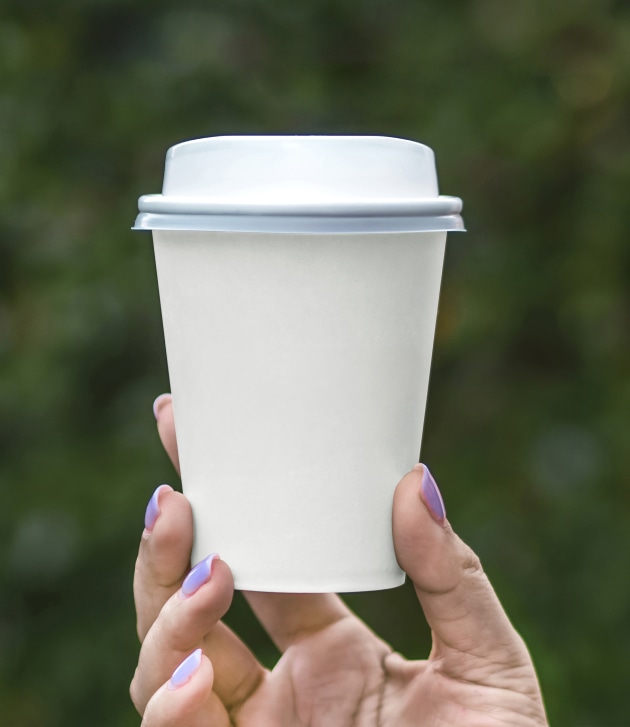
Taking home the Gold award for Sustainable - Certified Compostable was FSC Certified Home Compostable PHA Cups by BioPak.
This unique game-changing certified home compostable solution not only offers a leak-proof lining, but doesn’t require fossil-based materials as PHA is produced through a fermentation process using renewable resources, like plant sugars and vegetable oils.
The BioPak PHA cups are newly certified home compostable to Australian standards (AS5810) and can be disposed of in your backyard compost bin.
The PHA cups are made from sustainably sourced FSC Mix certified heavy-duty, premium quality board giving the paper cups superior stability, better lid fit, and insulation.
The PHA products are made in a factory that is BRC food safety certified, and all cups can be customised with your own unique design, creating a seamless and personalised brand experience.
DISPLAY-READY PACKAGING
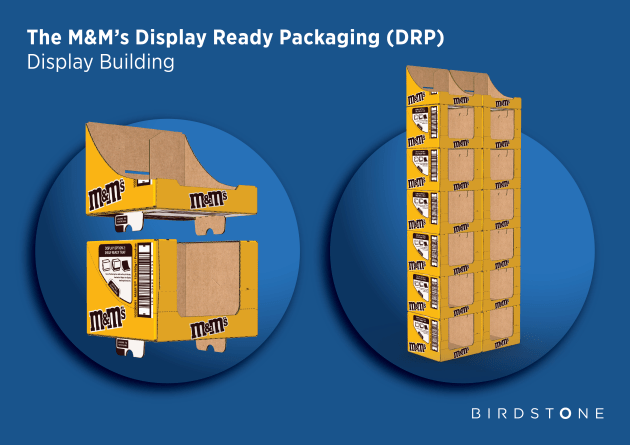
Taking home the Gold award for Sustainable - Display-Ready Packaging was M&Ms Display-Ready Packaging by Mars and Birdstone Collective.
Mars identified an opportunity to make significant sustainability and commercial improvements to their in-store point-of-sale (POS) displays and engaged Birdstone to design a new generation of POS.
The design strategy was to extend the functionality of the existing mono-material shelf-ready packaging (SRP) to reduce the need for traditional single-use, multi-material POS components.
In store, the design needed to be adaptable, stacking effectively as part of a larger display and also converting into the current SRP format to perform as a shelf-ready tray in a regular aisle.
Features that make it a great shipper include that the new design has the same top load and filling performance as the previous SRP and uses no more material.
Features that make it a great display unit include vertical columns to provide top-load strength for full pack weights to be stacked, and locking tabs and slots allowing cartons to lock together as a stable column.
The new display-ready packaging reduces multi-material, non-separable, single-use POS display components by 50 per cent, and will save around 60 tonnes of material annually at saturation.
The new display-ready packaging represents a 28 per cent reduction in the cost of a POS display, and an additional benefit is that the intuitive opening instructions enable all staff to convert the cartons and build display units, which saves as many as 6000 labour-hours annually at saturation by reducing hand packing of display units and simplifying assembly of POS displays.
MINIMISE LITTER
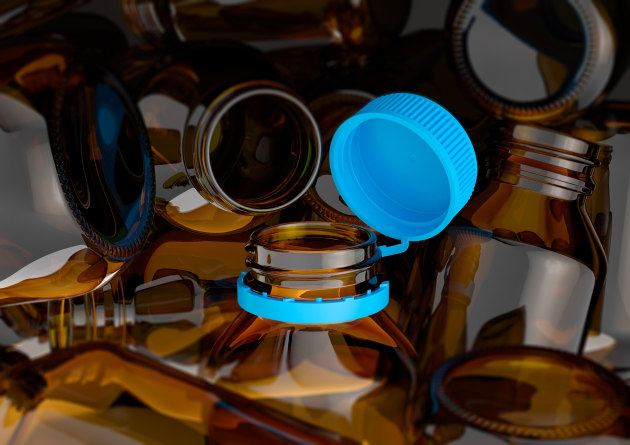
Taking home the Gold award for Sustainable - Minimise Litter was TetherSafe by Caps & Closures.
The TetherSafe cap by Caps & Closures is an innovative, sustainable packaging solution that combines functionality with regulatory compliance. It features a tethered cap mechanism and advanced materials, making it ideal for diverse industries.
TetherSafe includes an integrated tether that keeps the cap attached to the bottle after opening, reducing litter and meeting global environmental standards, such as the EU Directive 2019/904. This design prevents cap loss and ensures easy resealing.
The tether features a tamper-evident band that protects product integrity and gives consumers visible safety assurance.
Designed for full recyclability, TetherSafe allows the cap and bottle to be recycled together, supporting a circular economy. Its lightweight, mono-material construction improves recycling recovery rates.
Ribbed textures on the cap enhance grip, making it easy for consumers of all abilities to open and close, ensuring a user-friendly experience without compromising design.
MONO-MATERIAL ADVANCEMENTS
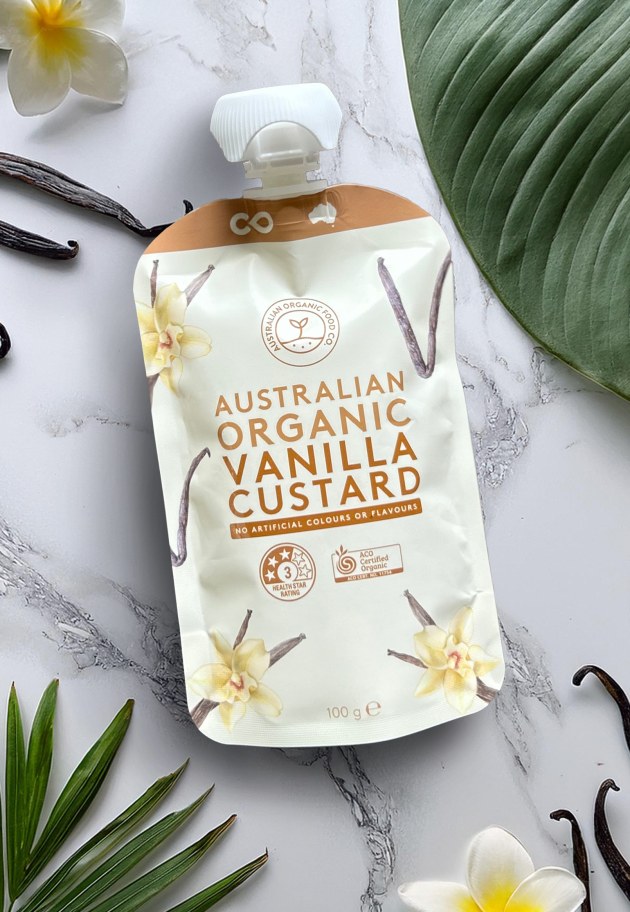
The Bronze award went to Hidden Story Pinot Grigio Bagnum by Victorian Alps Wine Co. and Auspouch Australia; while the Silver award went to AmPrima Recycle-ready packaging for shredded cheese by Amcor Flexibles.
And, taking home the Gold award for Sustainable - Mono-Material Advancements was Australian Organic Food Co. Vanilla Custard Mono Material Retort Pouch by Flavour Makers and Cheer Pack Asia Pacific.
The Australian Organic Food Co. Vanilla Custard is a delicious, single-serve, on-the-go snack made with certified organic ingredients.
Thanks to the retort cooking process, the custard inside is commercially sterile, while the high-barrier packaging ensures sterility throughout its shelf life. This innovative approach means their custard requires no refrigeration, making it perfect for lunch boxes, desk drawers, or vending machines, and ideal for distribution through ambient supply chains.
The new mono-material retort pouch is a recyclable mono-material pouch that maintains a low oxygen transmission rate after retorting and offers sufficient durability to withstand the rigours of the supply chain.
By inserting a spout into the new pouches, it created a new set of technical challenges to overcome as bonding soft plastics to rigid plastic components at high speed has typically required temperatures too high for mono-material structures, often leading to material shrinkage or damage to the barrier layer. This was overcome with the new design.
To further enhance the design, the new cap shape uses 20 per cent less plastic compared to the previous version without compromising functionality or accessibility. This thoughtful improvement underscores a commitment to material reduction.
While the finished product may look like a typical spout pouch to consumers, it represents a significant leap forward in mono-material innovation.
This achievement was made possible through the creation of two highly specialised, state-of-the-art films and an augmented converting process developed specifically for this application. That is why the pack is the first-of-its-kind to be launched worldwide.
PFAS REDUCTION
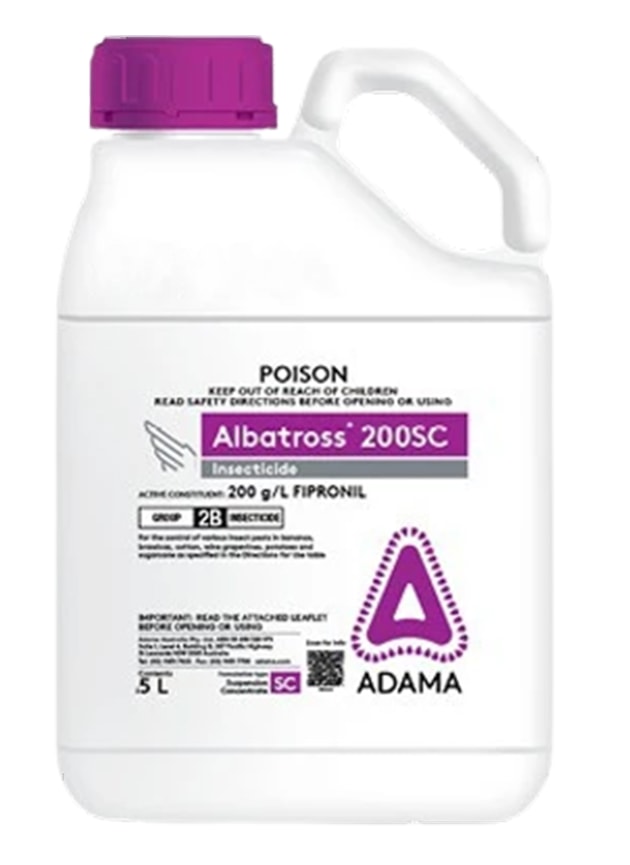
Taking home the Gold award for Sustainable - PFAS Reduction was ADAMA Plasma Coating Technology by Pact Group.
AgricChem packaging needs to provide product safety and integrity, retain its shape and performance throughout the supply chain, and prevent leakage.
Prior to 2024, agrichem packaging solutions manufactured in Australia typically included co-extruded/multi-layer packaging, which is difficult to manufacture because of the complexity of the multiple layers and fluorination. PFAS occurs during fluorination, and during this, agrichem packaging is treated with fluorine gas to reinforce the package.
ADAMA transitioned its entire range (5, 10, 15 and 20 litre containers) of Australian manufactured agrichemical packaging from fluorination to Pact Group's plasma coating, as it is a globally proven technology that applies an inert coating inside the plastic container providing single solvent resistant barrier suitable for chemicals.
The barrier is produced in single stage production that removes the need for fluorination, and as it is a one stage process, has the additional advantage of reducing manufacturing lead times, emissions from transport and supply chain risks.
The major benefit of Pact’s plasma coasting technology is that it is a more sustainable solution to fluorination, which causes PFAS. With the Chemicals of Concern and no added PFAS regulations, the technology offers a fit for purpose alternative to fluorination that is suitable for the agrichem packaging.
In addition to negating the need for fluorination, Pact's plasma coating is resistant to solvent permeation as chemicals are unable to permeate the walls of the container and evaporate or discolour the pack.
The innovative Australia-forest solution is also fully recyclable through the relevant recycling programs, such as DrumMuster in Australia or AgRecovery Program in NZ.
PLASTICS ALTERNATIVE

The Bronze award went to Advantage 9um Pallet Wrap by Bunzl Australia and New Zealand; while the Silver award went to SCA Globes and Bulbs by Supercheap Auto.
And, taking home the Gold award for Sustainable - Plastics Alternative was Macro Health Food Box-Bottom Paper Bags by Woolworths Food Co.
Macro’s introduction of a flat box-bottom stand up paper bag for dried fruits and nuts is a first in the Australian market, and replaces existing soft plastic packaging with a kerbside recyclable paper-based alternative, which incorporates advanced barrier technology for product freshness and is easy for consumers to recycle in their homes.
This initiative aligns with its broader commitment to sustainable packaging, which includes collaborating with suppliers to promote recycling and following the 'remove, reduce, reuse, recycle' principles in its operations.
Macro's paper-based packaging offers a compelling alternative to traditional plastic packaging, with several key advantages including effortless recycling.
As the box-bottom paper bags has been strategically designed for kerbside recycling, it seamlessly integrates with existing Australian collection programs. Consumers, already familiar with paper recycling, are more likely to recycle these bags correctly.
The new packaging offers significant plastic reduction with the shift reducing plastic usage by an average of 86 per cent across various bag sizes, resulting in a 96-tonne annual reduction in plastic waste.
The flat box-bottom design maximises product volume and enhances shelf presence, while improving transport efficiency. This format offers advantages over other paper-based options often limited to stand-up pouches or pillow packs.
Macro's paper-based packaging is a market leader, demonstrating a commitment to sustainability and responsible consumerism. It offers a practical and environmentally-friendly solution without compromising product quality or convenience.
RECYCLED CONTENT
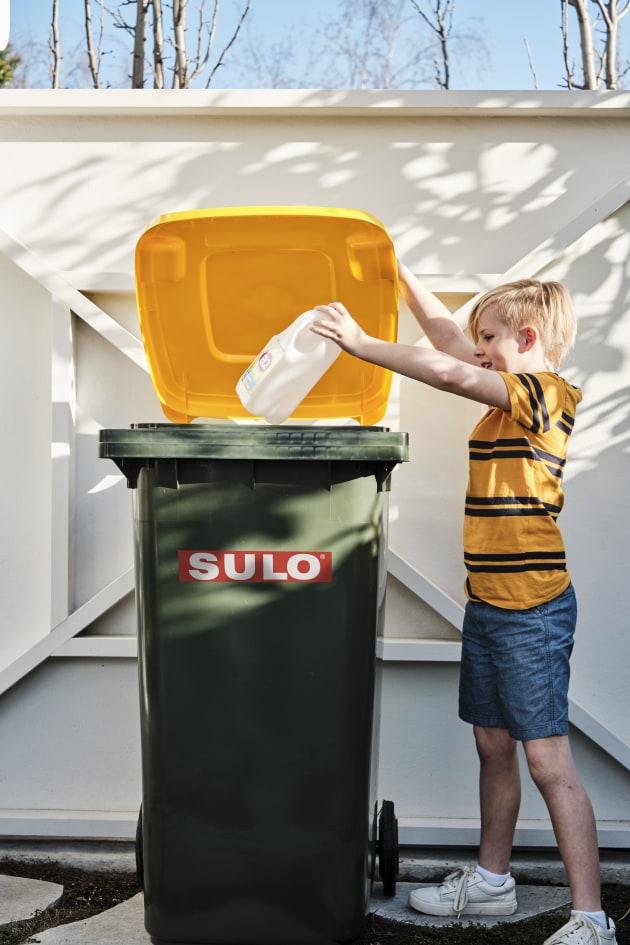
The Bronze award went to Weed n Feed On Hose 4L by Yates; while the Silver award went to Woolworths Poultry Trays by Inghams Enterprises and Woolworths Food Co.
And, taking home the Gold award for Sustainable - Recycled Content was SULO Circular Mobile Rubbish Bins by Pact Group.
In an Australian-first in 2024, Pact Group commenced producing its 120L and 240L SULO kerbside household mobile garbage bins from Australian sourced, post-consumer, kerbside collected recycled resin from shampoo, detergent and sauce bottles, and lids from jars and bottles.
Making SULO garbage bins using recycled plastic reduces the need to use virgin resin sourced from fossil fuels and diverts thousands of tonnes of plastic waste from landfill each year. Using recycled resin to make new bins can also significantly reduce carbon emissions and water usage from the manufacturing process.
The packaging waste is sourced from Australian kerbside collected recycling bins and recycled at the Pact-operated Circular Plastics Australia (CPA) recycling facility in Melbourne, where it is sorted, shredded and washed in the state-of-the-art facility and turned into a high-quality recycled resin.
Pact manufactures its SULO bins using the latest fully automated injection moulding, blending and material handling machinery. The only difference is that bins are manufactured in dark colours such as black and dark green, which enables them to be made with up to the highest quantity of locally sourced, post-consumer recycled plastic.
REUSE & REFILL
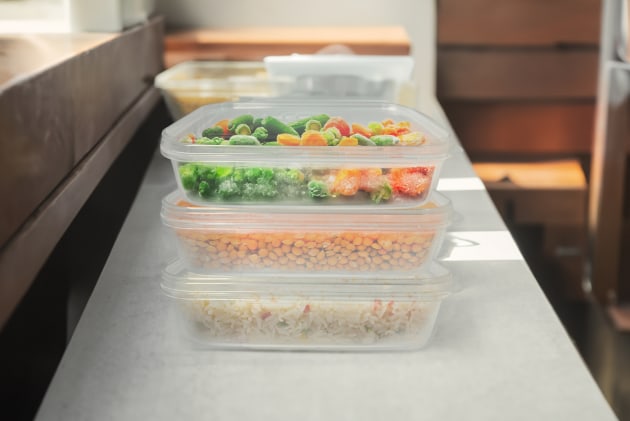
Taking home the Gold award for Sustainable - Reuse & Refill was Katermaster Regen reusable food container by Bunzl Australia and New Zealand.
Katermaster is Bunzl Australia and New Zealand’s exclusive reusable and refillable food service solution brand that is a locally-made mono-material pack with locally-sourced resins.
Katermaster offers reliable, high-quality kitchen and food service durable products to catering customers who want choice and quality guaranteed and are looking for a solution with a lower environmental footprint.
Bunzl and Genfac Plastic have a strategic partnership and have been collaborating for many years on different projects.
Genfac Plastics is a 100 per cent Australian-owned family business and the leading manufacturer of plastic food packaging in Australia. Operating from a state-of-the-art, highly automated Melbourne facility and with over 30 years of industry experience, Genfac Plastics is committed to sustainability through manufacturing recyclable products and a low carbon footprint.
Katermaster’s Regen is a locally made PP reusable food container that can be used in a microwave and refrigerator, plus lasts 700 commercial dishwashing rounds. It is specifically designed to address the food packaging needs of customers, especially those who cater in remote locations and want to provide practical and reliable alternatives to single-used food container for their workforce.
Katermaster’s Regen can be easily recycled by kerbside recycling at its end of life.
By making Regen a mono-material, they are not only addressing circular economy principles, but also reducing cost and streamlining the supply chain, making it a cost-effective option for their customers.





